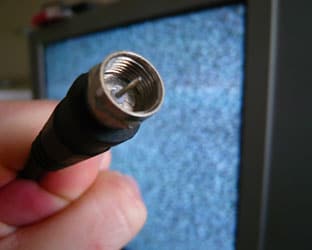Microsoft and Philips Electronics are calling for the FCC to put off any decision on allowing unlicensed wireless devices to operate in white spaces of the TV spectrum so their proposed devices can be retested. As you’ll recall, the original prototype devices failed the FCC tests for detecting operating TV stations to prevent interference. Now, though, the companies say all of the bugs have been worked out and their new devices "detected television signals at a level of -114 dBm or stronger with 100% accuracy." Microsoft, Philips and the rest of the White Space Coalition are now calling on the FCC to conduct its own tests of the new prototypes and put off for a couple of months a decision on whether to allow the unlicensed wireless devices to operate in TV white spaces. If approved, TV spectrum not in use by a local station could be used to provide wireless broadband access.
Not surprisingly, the NAB is not impressed. ""It’s ironic that a company with a track-record of developing less-than-perfect products is now claiming to have invented a device that functions with ‘100 percent accuracy.’ While frustrated users of Microsoft products have come to expect routine system errors and computer glitches, they do not expect the same to hold true for broadcast television service. As was shown in the FCC’s July test results, the devices proposed by the White Space Coalition do not function as advertised. They do not detect broadcast signals, and they do interfere with TV reception," said NAB Executive Vice President Dennis Wharton.
TVBR/RBR observation: The original tests proved that the devices can fail to detect TV signals and, as a result, cause interference by trying to use occupied TV spectrum. So what if the new, improved devices are working now? How do we know they will not fail at some point, as the first prototypes did? And what will keep people from modifying them, boosting power levels and/or bypassing the signal detection safeguards in an attempt to "supercharge" their wireless devices?




